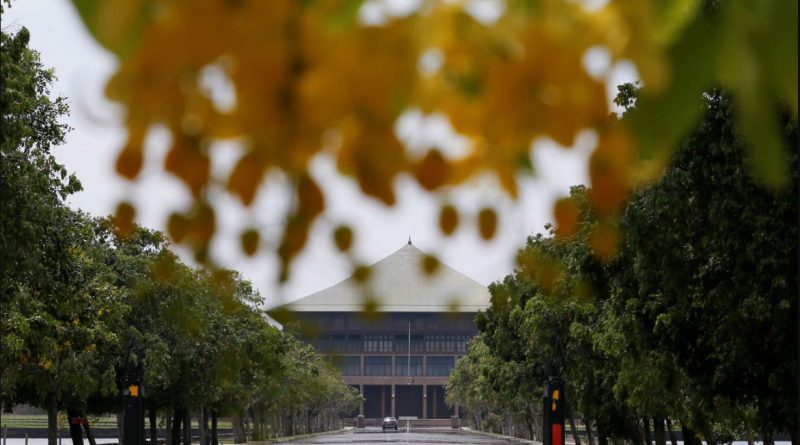Sri Lanka parliament passes anti-corruption bill without vote
Colombo (Reuters) – Sri Lanka’s parliament approved an anti-corruption bill on Wednesday, aimed at improving governance in the crisis-hit country and meeting requirements linked to a $2.9 billion bailout from the International Monetary Fund (IMF).
The legislation was passed without a vote in the 225-member parliament.
“The bill is passed with amendments,” Sri Lanka parliament Speaker Mahinda Yapa Abeywardena told lawmakers after more than two dozen pages of amendments were included into the draft legislation during the morning session.
Sri Lanka’s economy nosedived into the worst financial crisis in more than seventy years after a severe foreign exchange crunch last year forced the island to default on its foreign debt, which led to soaring inflation and a rapid depreciation in its currency.
But the country’s fortunes improved after it locked down a $2.9 billion programme with the IMF in March, which included introducing fresh anti-corruption legislation to strengthen governance and bring it in line with the United Nations Convention Against Corruption.
This is the first time an IMF program has been linked to such a measure in Asia.
The Anti-Corruption Bill increases the powers and resources allocated to Sri Lanka’s Bribery and Corruption Commission, which is mandated with carrying out major investigations. It can now conduct joint investigations with local and international counterparts.
The new bill also makes it mandatory for electoral candidates to declare their assets, which will be published ahead of elections, and expands bribery offences to include private sector stakeholders.
“We welcome the law, but the proof of the pudding will be in the eating,” said Sankhitha Gunaratne, Deputy Executive Director, Transparency International Sri Lanka (TISL).
“A lot of it will depend on enforcement of the law, whether law enforcement authorities will be empowered to be free of political interference and also not have to self-censor, to act without fear or favour during investigations.”



